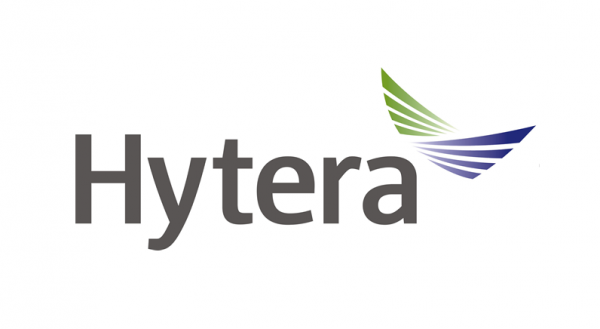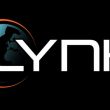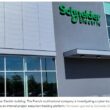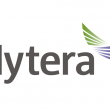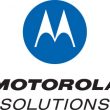Hytera Communications, Motorola Solutions fail to reach royalty agreement
Attorneys for Hytera Communications and Motorola Solutions acknowledged last week that they have not reached a royalty agreement through negotiation, so a federal judge likely must determine the type of royalty payments China-based Hytera Communications will make to Motorola Solutions when selling certain DMR products.
Judge Charles Norgle of the United States District Court for the Northern District of Illinois previously established Jan. 14 as a deadline for Hytera Communications and Motorola Solutions to reach a negotiated agreement on the size of royalty payments that Hytera will have to pay when selling many DMR products in the future.
Attorneys for the companies discussed the matter only once during the 27 days since Norgle made the directive last month, although further discussions are scheduled to be conducted today, according to court documents.
“Motorola and Hytera conferred on January 7, 2020, regarding Motorola’s proposals for resolving the royalty issue by agreement,” according to the Motorola Solutions filing. “Motorola outlined the terms it proposes to resolve the royalty, including compromise proposals on the proposed royalty amounts.
“Hytera did not provide its position on the substance of Motorola’s proposals, instead declining Motorola’s offer to meet and confer again before the Court’s ongoing-royalty-plan deadline (January 14) and indicating that Hytera is not available to continue discussions on the substance until January 19.”
On Dec. 18, Norgle released his order that Hytera Communications should pay royalties for using trade secrets and copyrighted software code stolen from Motorola in much of its DMR portfolio in a ruling that denied Motorola Solutions a permanent injunction that would have stopped Hytera from selling the DMR products worldwide.
Absent an agreement on the royalty-payment structure, Norgle’s ruling called for Hytera Communications and Motorola Solutions to submit separate proposals on Jan. 14. Both companies did submit on Jan. 14, but the filings focused only on briefing schedules, not substantive proposals about royalty payments that Hytera will make.
Under both briefing-schedule proposals, Norgle would receive the final input about the matter on Feb. 17, after which he could determine the amount and structure of the royalty payments Hytera Communications would make to Motorola Solutions. However, the briefing schedules proposed—like so many aspects of this lengthy litigation—by the companies differed noticeably.
Under the Hytera Communications proposal, both companies would provide an initial brief on Jan. 29 and a response on Feb. 17. Under the Motorola Solutions proposal, Motorola Solutions would submit an opening brief on Jan. 26, Hytera would reply by Feb. 10, and Motorola Solution would file its final brief by Feb. 17.
Hytera Communications attorneys described the staggered briefing schedule proposed by Motorola Solutions as “manifestly unfair,” according to the company’s filing.
“Motorola’s proposal would give Motorola two briefs, while Hytera only gets one,” Hytera Communications states in its brief.
“It would give Motorola the chance to unilaterally reframe the existing record to support its position, while leaving Hytera—in just fifteen pages—to rebut that framing, critique Motorola’s approach, present its own approach, and explain the relative merits of Hytera’s approach. And still under Motorola’s proposal, Motorola would get the final word on the issue.”
Industry sources have indicated that Norgle’s royalty ruling in December is good news for existing Hytera customers, because it should ensure that Hytera can maintain its DMR portfolio—effectively removing the possibility that Hytera DMR systems or devices could not be improved or receive software updates.
Whether Hytera can continue to compete effectively in the DMR marketplace in securing new sales could depend on the size and structure of the royalty payments to Motorola Solutions, according to industry analysts. Meanwhile, many industry sources note that the biggest threats to the DMR market probably come from various push-to-talk-over-cellular (PoC) solutions offered by commercial carriers and many LMR vendors.
During the federal-court trial that began in Nov. 2019, Hytera attorneys acknowledged that three former Motorola (the company had not yet changed its name to Motorola Solutions at the time) employees—Samuel Chia, Y.T. Kok and G.S. Kok—accessed more than 7,000 Motorola documents prior to each of them leaving and joining Hytera shortly in 2008. However, Hytera attorneys described the three engineers as “bad apples” who did not share with anyone else at Hytera that the DMR trade secrets and software were taken from Motorola.
Hytera had its U.S. subsidiaries—Hytera America and Hytera Communications America (West)—file for Chapter 11 bankruptcy protection in May 2020, citing financial issues caused by Norgle affirming the $764.6 million award against Hytera in March. Earlier this month, Norgle issued a decision that reduced by $220.9 million the award amount owed by Hytera Communications.
Last month, a bankruptcy judge in California verbally approved the sale of Hytera U.S. assets not included in the case before Norgle to a new entity called Hytera US. The bankruptcy court is scheduled to conduct a hearing on Jan. 22 about the sale to Hytera US.


